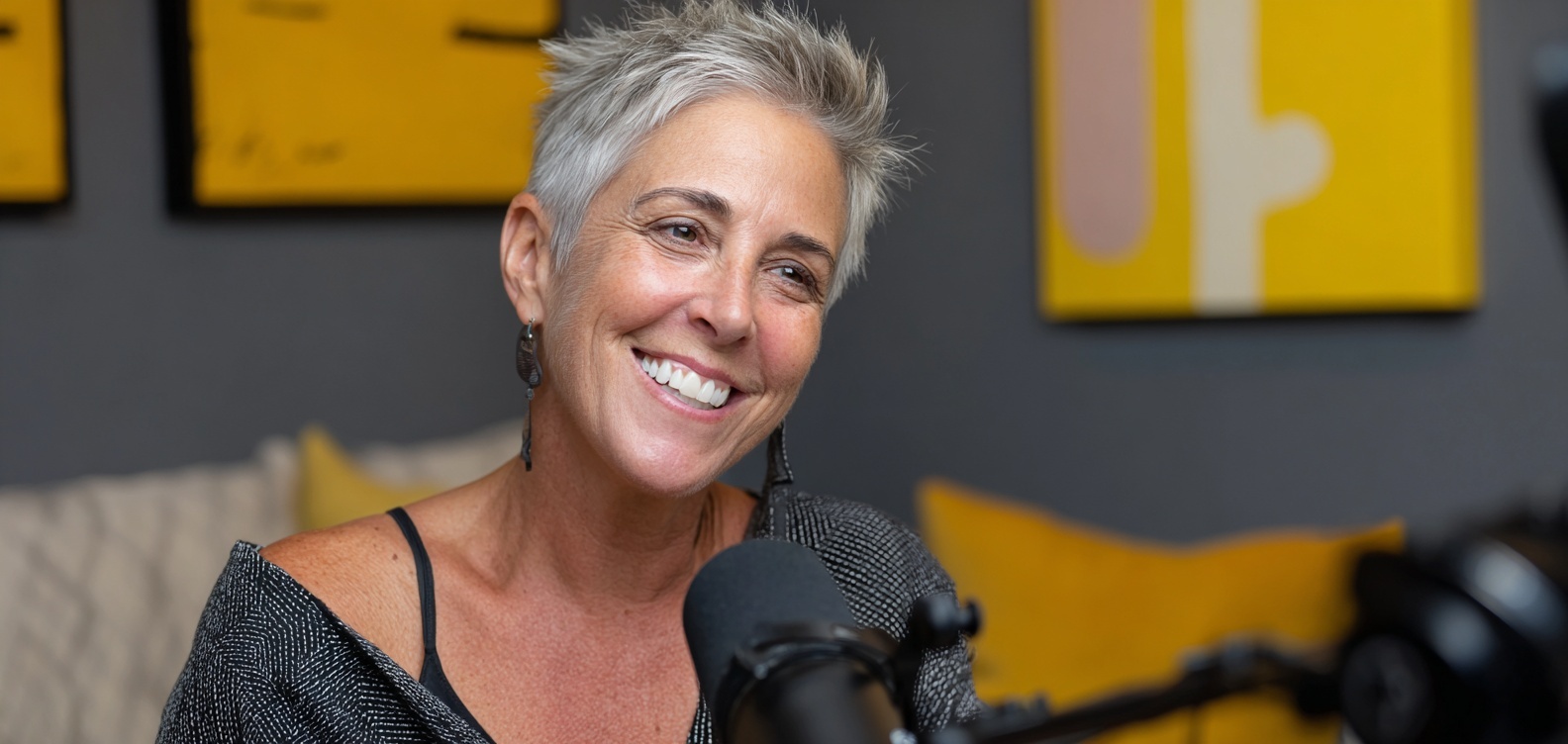Authentic Customer Voices Episode 3: From Empathy to Impact - Building Human-Centered Customer Experiences


Wednesday, November 12, 2025


Authentic Customer Voices Episode 3: From Empathy to Impact - Building Human-Centered Customer Experiences






View the podcast on Youtube

Overview
In this episode of Authentic Customer Voices, Jennifer Edwards, VP of Customer Experience at Five9, shares how authenticity, trust, and creativity shape her approach to building human-centered experiences across customers, partners, and employees. She reflects on why many companies overpromise on “customer obsession,” the need to replace outdated NPS metrics with real-time insight, and how AI can make feedback more intuitive and human. Her vision for the future is one where technology amplifies authenticity and customer voice becomes the true driver of lasting growth.
Full Transcript
[Podcast Intro – Host]
Welcome to Authentic Customer Voices, the podcast where we sit down with customer-first leaders who are rethinking how authentic voices shape modern experiences and lasting growth.
Today's guest is someone who blends heart, strategy, and community in everything she does. Jennifer Edwards is the VP of Customer Experience at Five9, where she’s leading efforts to create meaningful, human-centered experiences for customers, partners, and employees.
Beyond her leadership in tech, she’s also the co-founder of the Community Art Collaborative, bringing creativity and healing to the communities she serves.
Jen, we are so excited to have you here today. I’d love to kick off with a little about your story, your background, and what drives your work.
Jennifer Edwards:
Thank you so much for having me. It’s great to be here.
My work is driven by experiences early in my career when I started in sales. There were many times when I’d have conversations about things that needed to be fixed or resolved for customers. Once those challenges were addressed, those same customers were ready to sign on the dotted line and buy more.
That was a recurring theme for me, and I found a lot of satisfaction in resolving those challenges and supporting customers in that way. Naturally, I gravitated toward that kind of work, and over time, customer success and customer experience grew out of that foundation.
Outside of my job, my nonprofit work makes me a better leader. It builds creativity and thoughtfulness around the community, and it’s always about connecting and building. Every time I go out to volunteer and work with my co-founder, Michalina, creating art with young people and artists across the community, I come back inspired. That creativity directly influences how I lead my teams and serve my customers.
Host:
I love that. You talk a lot about creating experiences that matter. When it comes to customer voice, what does that mean to you, both personally and professionally?
Jennifer Edwards:
Authenticity is the most important thing we can bring to any conversation or experience—whether in business or our personal lives.
We are each on a journey, building things in both our personal and professional worlds. When we tell stories or share experiences, we should recognize both the people behind them and the brands they serve.
In the community, it’s about the diversity of people and what we’re building together. I think that sense of community—what we see in our everyday lives—also applies to how great brands build and learn from one another.
It’s those authentic stories that so often help someone else have that aha moment. You can see yourself in business, in art, or in shared experiences—and that connection builds common ground. That’s what I try to help my teams create every day.
Host:
I love that. Those aha moments are so inspirational.
Jennifer Edwards:
They’re so much fun, too! I can’t tell you how many times we’ve discovered that customers who work in completely different industries have these surprising intersections—like DJs who love roughing it in the outdoors or executives who bond over making sourdough bread.
Relating on that human level opens the door to deeper, more meaningful business conversations. It changes the way people interact, and that’s so important to creating authentic stories.
Host:
Absolutely. Many companies say they’re “customer obsessed,” but often, it feels like they’re missing the mark. Where do you think the biggest disconnect happens between intention and execution?
Jennifer Edwards:
Such a good question.
I think we sometimes overshoot. We go too big, too far, too fast, instead of taking consistent, manageable steps. There’s a lot of talk about building trust, but part of being truly customer-obsessed is delivering on what you say you’ll do—for customers, partners, and employees alike.
Sometimes it’s not about the big, bold moves. It’s about getting the foundational things right. Talk is easy, but real impact comes from consistent follow-through. When you do what you promise—again and again—you build trust, advocacy, and excitement.
Then, when you announce something new, people believe you’ll deliver because you always have.
We’re in a time where everyone wants to launch the biggest, flashiest initiative, but maybe what’s needed instead is simplicity, thoughtfulness, and consistency.
Host:
That’s such an important point. Your background spans marketing, customer experience, and nonprofit leadership. How has that shaped the way you think about not only listening to but acting on customer feedback?
Jennifer Edwards:
I’m very action-oriented. If something is said, I believe we need to act on it.
The leaders I grew up under taught me that if you say you’re going to do something, you need to follow through. Ownership is key—but ownership also means making sure responsibility sits in the right place within an organization.
Just because I hear something doesn’t mean I’m the one to solve it, but it does mean I’m responsible for bringing it to the right person and closing the loop.
It gets busy, but I try to be mindful—with my advisory boards, advocates, teammates, and partners—that when we commit to something, we follow through.
The small things add up to the big things. Often, it’s about getting the foundations right before anything else.
Host:
Can you share examples of how you bring the customer’s voice to life beyond surveys or CSAT scores?
Jennifer Edwards:
Absolutely. One of my favorites is something our CMO, Nikki Hall, and I do regularly—we go spend a “day in the life” with our customers.
Next week, we’ll be visiting a client to sit with their contact center agents, talk with their leaders, and close the day by hearing from executives who’ll join us at our CX Summit.
Nikki gathers insights, and together we bring those back to our executives, marketing, and strategy teams. We integrate customer feedback into our messaging, ads, and even product direction.
We also have a champion program where customers advise our product teams directly. They test messaging, provide input, and share feedback in quick, manageable sessions. That firsthand input, structured or conversational, always leads to powerful aha moments.
Host:
I love that. Let’s talk about measurement. What signals do you look for to know your customer experience work is making an impact?
Jennifer Edwards:
We track how many champions join our programs and how many advocate publicly on our behalf.
Of course, we also track renewals and expansion, but engagement is one of the strongest signals of health.
Honestly, I’d rather have a customer challenge me than go silent. When customers stop engaging, that’s when you should worry. Challenging conversations move relationships forward.
Advocacy—whether it’s a public quote, a community comment, or a case study—is a sign of trust and health. You can correlate that with growth, lifetime value, and brand strength. It’s always a mutual win when customers advocate because it benefits both their brand and ours.
Host:
That’s spot-on. How are you thinking differently about customer voice now than you were five years ago?
Jennifer Edwards:
Five years ago, everyone was focused on NPS. But I think NPS needs to evolve.
In B2B, it’s not just about “How likely are you to recommend?” It’s about “How likely are you to renew?” or “How likely are you to expand?” Those questions drive more relevant insights.
NPS has been overused. I’d love to see it reimagined—or even retired—in favor of richer, real-time feedback methods.
AI can help here by capturing sentiment, analyzing themes, and surfacing insights proactively. It allows us to segment and understand what conversations should come next—without being intrusive. Thoughtful, contextual engagement is the goal.
Host:
That’s a great perspective. Last question: What’s your bold hope for how businesses will listen to and amplify the voices of their customers in the coming years?
Jennifer Edwards:
My bold hope is that we become less invasive and more intuitive in how we capture authentic customer voice.
I want to see companies honor the people behind the businesses—leaders and teams building something meaningful—and highlight the human aspect while using technology in a thoughtful way.
Host:
I love that answer. Jen, thank you so much for joining us on the podcast.
Jennifer Edwards:
Absolutely. It was wonderful to be here. I really enjoyed this—thanks for having me.
Host:
To our audience, we hope you found this conversation valuable. Follow along for more episodes with leaders shaping the future of customer-led growth. Thanks for listening. We’ll see you next time.
🎉 Save your spot
Register for the event
Once your spot is secured, we’ll send your confirmation details.
Table of contents
Subscribe to our newsletter
Subscribe to receive the latest blog posts to your inbox every week.
By subscribing, you agree to our Privacy Policy
Subscribe to our newsletter
Get the latest news and updates from our team.
By subscribing, you agree to our Privacy Policy




